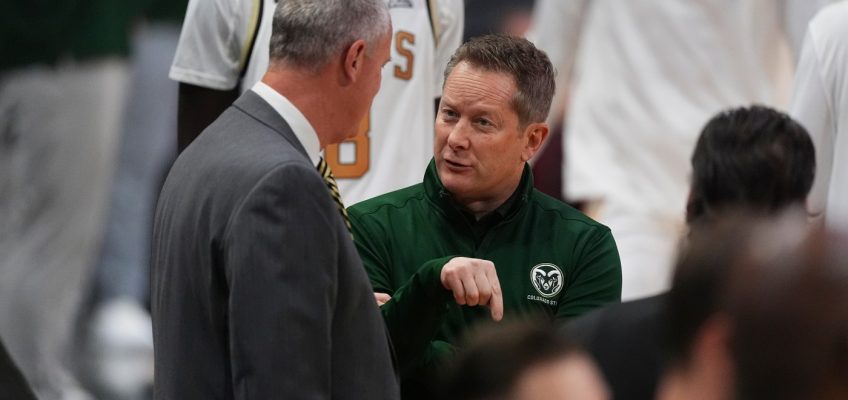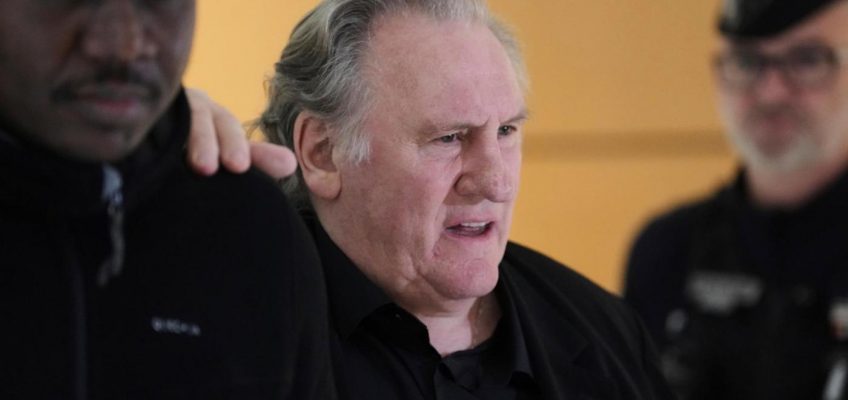By TAMMY WEBBER and MICHAEL PHILLIS, Associated Press
A once-every-four-years report card on the upkeep of America’s infrastructure gave it a “C” grade on Tuesday, up slightly from previous reports, largely due to investments made during former President Joe Biden’s administration.
The report from the American Society of Civil Engineers, which examined everything from roads and dams to drinking water and railroads, warns that federal funding must be sustained or increased to avoid further deterioration and escalating costs.
“We have seen the investments start to pay off, but we still have a lot of work to do out there,” said Darren Olson, chair of this year’s report. He said decrepit infrastructure – from poor roads that damage cars to delayed flights to power outages that spoil groceries — hurts people and the economy.
“By investing in our infrastructure, we’re making our economy more efficient, we’re making it stronger (and) we’re making ourselves globally more competitive,” he said.
It’s especially critical that infrastructure can handle more extreme weather due to climate change, said Olson, noting hurricanes that devastated the East Coast and parts of Appalachia last year. The U.S. saw 27 weather disasters last year that cost at least $1 billion, second-most since 1980.
The 2021 Infrastructure Investment and Jobs Act provided $550 billion in new infrastructure investments, but is set to expire in 2026. Another $30 billion came from the 2022 Inflation Reduction Act, including for projects focused on clean energy and climate change, the engineering group said.
FILE – President Joe Biden speaks about his infrastructure agenda under the Clay Wade Bailey Bridge, Jan. 4, 2023, in Covington, Ky. (AP Photo/Patrick Semansky, File)
President Donald Trump’s administration has targeted some of Biden’s green policies. Public parks improved to a C-minus from a D-plus, for example, thanks in part to significant investments over several years. Recently, however, the Trump administration moved to slash National Park Service staffing.
In 2021, the U.S. earned a C-minus overall. The investments made since then are just a fraction of the $9.1 trillion that the civil engineers group estimates is needed to bring all of the nation’s current infrastructure into a state of good repair.
Even if current federal infrastructure funding were maintained, there still would be a $3.7 trillion gap over a decade, according to the report.
The bill to upgrade and maintain the nation’s roughly 50,000 water utilities, for example, is $625 billion over the next two decades, according to the federal government. The grade for drinking water was C-minus, unchanged from four years ago.
Many communities already struggling to maintain old, outdated drinking water systems also face new requirements to replace lead service line s and reduce per- and polyfluoroalkyl substances, collectively known as PFAS.
The bipartisan infrastructure bill helped complete or start “a lot of really important projects,” said Scott Berry, director of policy and governmental affairs at the US Water Alliance. “But the gap has widened so much over the last couple of decades that a lot, lot more investment is going to be needed.”
The bill also provided billions to help the U.S. Army Corps of Engineers upgrade inland waterways, which move roughly $150 billion in commerce every year, improving the grade from a D-plus to a C-minus.
FILE – A bridge along Interstate 26 is destroyed in the aftermath of Hurricane Helene, Oct. 4, 2024, in Erwin, Tenn. (AP Photo/Jeff Roberson, File)
Barges on the Mississippi River, for example, carry enormous amounts of coal, soybeans, corn and other raw materials to international markets. But critical infrastructure like locks and dams — many built more than a half-century ago and requiring regular maintenance and repair — is often invisible to the public, making it easy to neglect, said Mike Steenhoek, executive director of the Soy Transportation Coalition.
And when big projects are funded, it too often comes in stages, he said. That forces projects to pause until more money is appropriated, driving up costs for materials and labor.
“If we really want to make the taxpayer dollars stretch further, you have got to be able to bring a greater degree of predictability and reliability in how you fund these projects,” he said.
The report’s focus on engineering and money misses the importance of adopting policies that could improve how people use and pay for infrastructure, according to Clifford Winston, a microeconomist in the Brookings Institution’s economic studies program.
“You fail to make the most efficient use of what you have,” said Winston. For example, he noted that congestion pricing like that recently adopted by New York City — charging people to drive in crowded areas — places the burden on frequent users and can pressure people to drive less, reducing the need for new bridges, tunnels and repairs.
Roads remain in chronically poor shape, receiving a D-plus compared to a D in the last report, despite $591 billion in investments since 2021.
Two categories, rail and energy, received lower grades. Disasters like the derailment of a train carrying dangerous chemicals in East Palestine, Ohio, in 2023 lowered rail’s previous B mark to a B-minus.
Related Articles
Watch live: Intelligence officials brief Senate on national security threats
Watch live: Mike Huckabee, Trump’s pick to be Israel ambassador, will face senators as war in Gaza restarts
Greenlanders unite to fend off the US as Trump seeks control of the Arctic island
Greenlanders unite to fend off the US as Trump seeks control of the Arctic island
International students weigh new risks of pursuing higher education in the US under Trump
The energy sector, stressed by surging demand from data centers and electric vehicles, got a D-plus, down from C-minus.
Engineers say problems in many sectors have festered for so long that the nation must figure out how to address the shortcomings now or pay for them when systems fail.
On Wednesday, a delegation of engineers will visit Washington to talk to lawmakers about the funding impacts and “the importance of continuing that investment,” said Olson, who said the needs are a bipartisan issue.
“When we talk about it in ways of how better infrastructure saves the American family money, how better infrastructure supports economic growth, we’re really confident that … there is strong support,” he said.
The Associated Press receives support from the Walton Family Foundation for coverage of water and environmental policy. The AP is solely responsible for all content. For all of AP’s environmental coverage, visit https://apnews.com/hub/climate-and-environment




